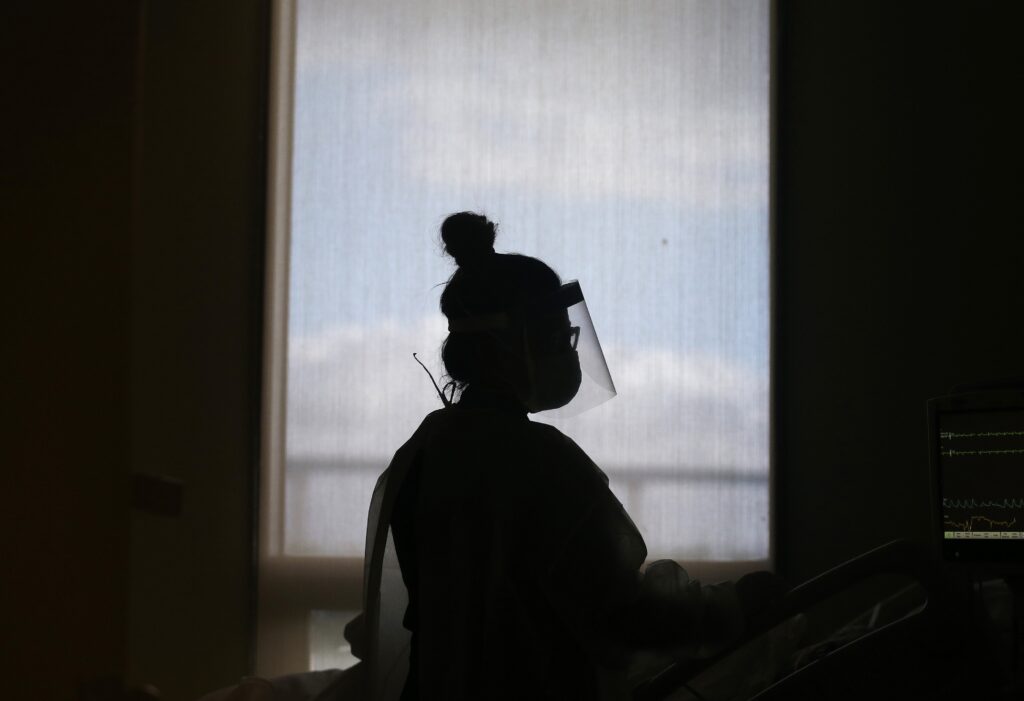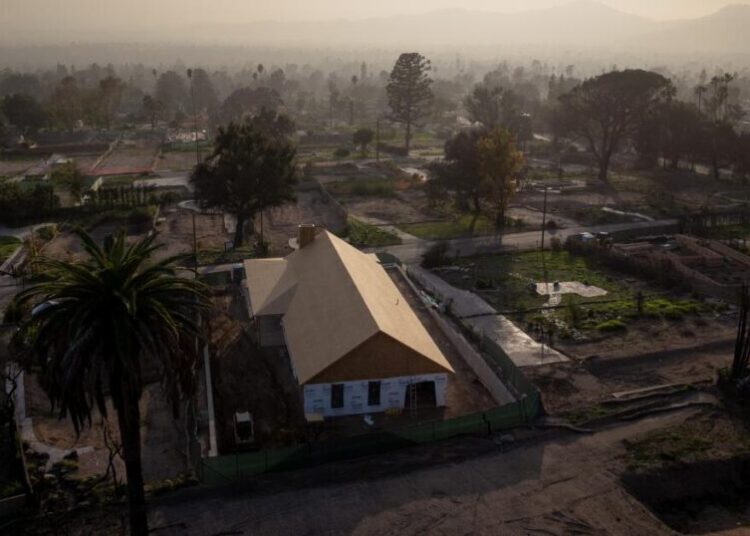A proposal for graduate student loan limits has spawned misinformation about whether the Trump administration values fields such as nursing and social work, and it has stoked fears about future access to federal financial aid.
The controversy is rooted in the One Big Beautiful Bill Act that President Donald Trump signed into law this summer. A provision of the law restricts how much money students can borrow from the federal government for an advanced degree, depending on whether they are pursuing a degree designated as a professional or graduate program.
Students in professional programs can borrow up to $50,000 a year, or $200,000 total, more than double the amount of a student in a graduate program. Congress left it up to the Education Department and a committee of higher-education experts to flesh out the terms.
The department and the committee landed on a proposal earlier this month that set off a backlash from industry groups and Democratic lawmakers who are railing against the exclusion of certain professions from the higher loan limits.
Some complaints that have surfaced on social media are riddled with inaccuracies. Let’s separate fact from fiction.
How did the Education Department determine the difference between a professional and a graduate degree?
The department and the committee of experts largely relied on the text of the One Big Beautiful Bill Act, which defines a professional student based on a federal classification from the 1970s. Under that classification, a degree is considered professional if the field requires skills beyond those needed to receive a bachelor’s degree, and licensure is generally required.
Those terms could describe a host of professions, but the classification goes into detail with examples: pharmacy, dentistry, veterinary medicine, chiropractic, law, medicine, optometry, osteopathic medicine, podiatry and theology. The classification said professional degrees are not limited to that list, but the Education Department initially stuck to the 10 examples, claiming Congress was clear in its intent.
Committee members pushed back against what they viewed as a rigid interpretation of the law, and some called for a broader definition that would have included nursing programs, according to two negotiators who spoke on the condition of anonymity because they were not authorized to speak publicly. That proposal was tabled, but clinical psychology was added to a revised list after some wrangling. The committee also said doctoral programs can be considered professional if they involve at least six years of postsecondary education.
While some negotiators still expressed concerns about the distinctions, the panel ultimately agreed to recognize the 11 programs and a few doctoral degrees for the $200,000 loan limit. Borrowing for all other graduate programs will be capped at $20,500 a year or $100,000 in total.
Is the Trump administration saying workers such as nurses, architects and social workers are not professionals?
No. The Education Department said the classification is not a value judgment on any profession, but a way to distinguish which programs qualify for higher loan limits.
Why is the government making a distinction between graduate programs anyway?
In the drafting of the One Big Beautiful Bill Act, Republican lawmakers argued that imposing caps on graduate school borrowing would rein in student loan debt and incentivize colleges to lower the cost of education. Lawmakers created tiered loan limits in acknowledgment of the high cost of some degree programs, such as law and medicine.
But with medical school costs averaging close to $300,000, higher education experts worry the new loan limits could discourage enrollment or push students into the private market for loans, where there are fewer consumer protections. And while private lenders will extend credit for medical and law degrees, higher education experts predict they may be reluctant to do the same for graduate degrees with lower earning potential.
Starting July 1, 2026, the law eliminates Grad Plus, a federal loan created in 2006 that lets students borrow up to the full cost of attendance to pay for graduate degrees. That unlimited borrowing and the high cost of advanced degrees resulted in graduate programs accounting for nearly 40 percentof all outstanding student debt, despite graduate students making up about 15 percent of all higher education enrollment.
What does this mean for students pursuing graduate degrees that are not deemed professional?
Those students will have less access to federal student loans once the limits take effect on July 1, 2026. People pursuing a degree in the graduate category will be able to borrow no more than $20,500 a year and $100,000 over a lifetime.
Student advocates and some liberal lawmakers worry the proposed limits will result in a decline in enrollment of low-income and first-generation college students who can’t easily afford graduate school and may not qualify for private student loans.
Health care groups have been among the most vocal critics of the “professional” definition because of the exclusion of graduate nursing degrees. Jennifer Mensik, president of the American Nurses Association, said the industry is in dire need of faculty to teach the next generation of nurses, but the proposed restrictions could limit the pool of people who pursue the degrees needed to teach.
“We’re already short over 2,000 faculty nurses … and this is just devastating for the entire health care infrastructure when nurses are the backbone,” Mensik said.
The Education Department argues that 95 percent of nursing students borrow below the annual loan limit and therefore are not affected by the new caps.
“Placing a cap on loans will push the remaining graduate nursing programs to reduce their program costs, ensuring the nurses will not be saddled with unmanageable student loan debt,” the Education Department wrote in a statement combating the backlash on Monday.
Mensik said that many graduate nursing programs cost well above $100,000 and that there is no indication that universities will lower the price. She said the proposed limits arrive as hospitals are rolling back nursing scholarships and Congress is proposing funding cuts for nursing education.
Her association and others plan to raise their concerns in the public comment period after the Education Department releases the final rule next year.
What does this mean for people who are already enrolled in a graduate program that doesn’t meet the professional definition?
Student loan borrowers who are enrolled in a graduate program are exempt from the new loan limits for three years.
Is this a done deal?
No. Although the Education Department reached a consensus with the committee of higher education experts on the proposed definition, it must publish the proposed text for the public to comment, before the regulation can be finalized.
The Education Department could adjust the terms of its proposal in response to public comments. Industry groups are urging the agency to reconsider its definition of professional degrees to include fields such as architecture, accounting and social work.
The agency is expected to release the approved wording in early 2026.
The post Does the Trump administration consider nurses professionals? Yes and no. appeared first on Washington Post.




